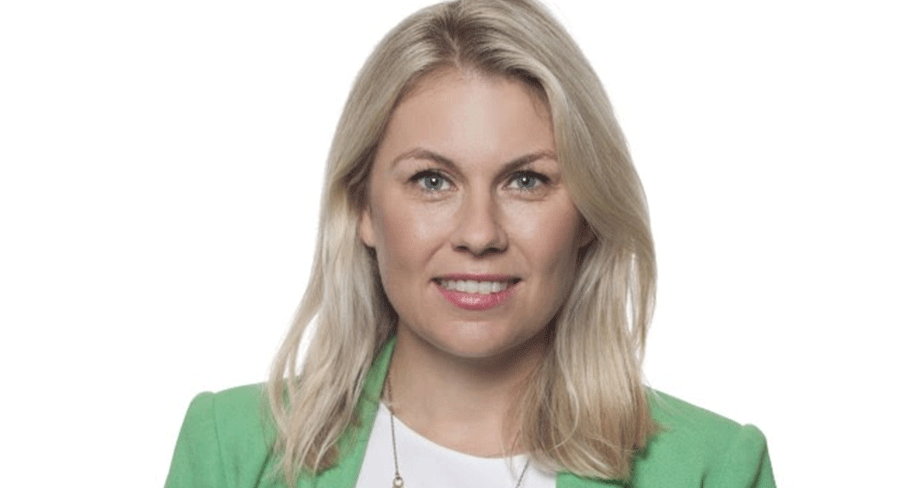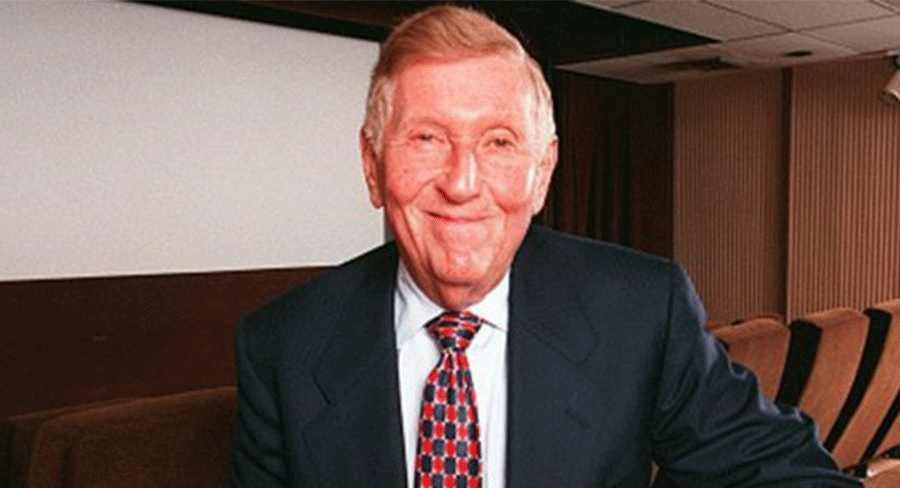Business of Media
Universal Music creative agency strengthens team with Brooke Pilton
Adam Ireland, general manager, Universal Music Australia’s agency Bring, has announced that Brooke Pilton (pictured) has joined the company as music partnerships director, based in Sydney and reporting to Ireland.
Joining from Octagon where she held the position of group account director, Pilton’s new role strengthens Bring’s support for their growing roster of clients activating campaigns with Universal Music’s creative agency.

Employing her experience and skills across brand endorsements, activations, media partnerships, music video integration and other music-led activities, Pilton will also hold responsibility for new campaign delivery and music client retention. She will be assisted by newcomer account manager, Alexia Tomshin.
Brooke Pilton said: “I’ve spent a good portion of my career helping brands understand and activate the great Aussie passion point that is sport. Now, I’m so excited to join Adam and the team in the cultural pillar that truly connects with all Australians – music.”
Adam Ireland added: “With music consumption booming, we’re seeing more Australian brands turn to music as their primarily cultural channel to connect with consumers. To meet this demand and create unique campaigns for a raft of clients new to the agency, we have taken steps to bolster our team. To attract someone of Brooke’s experience and calibre is reflective of the growth and appetite from brands to get into music.”
Bring clients include American Express and the recently announced American Express Music Backer’s campaign, mobile telecommunications Oppo, Powerball (for Tattersal Group), KFC and finance shopping app Klarna.
ViacomCBS statement on the passing of Sumner M. Redstone
ViacomCBS is mourning the passing of Sumner M. Redstone, its Chairman Emeritus, and Chairman and CEO of National Amusements, the controlling shareholder of ViacomCBS.
Bob Bakish, President and CEO of ViacomCBS, said: “Sumner Redstone was a brilliant visionary, operator and dealmaker, who single-handedly transformed a family-owned drive-in theatre company into a global media portfolio. He was a force of nature and fierce competitor, who leaves behind a profound legacy in both business and philanthropy. ViacomCBS will remember Sumner for his unparalleled passion to win, his endless intellectual curiosity, and his complete dedication to the company. We extend our deepest sympathies to the Redstone family today.”
For nearly 30 years, Redstone led Viacom as Executive Chairman of the Board following National Amusements Inc.’s acquisition of a controlling stake in the company in 1987. He also held the position of CEO from 1996 until 2005, during which time Viacom merged with CBS Corporation in 2000. Upon the separation of the two companies in December 2005, Redstone served as Executive Chairman of the Boards of CBS and Viacom. In February 2016, Redstone assumed the role of Chairman Emeritus for both companies.
Sumner Redstone: Empire builder for the MTV Generation
Sumner M. Redstone belonged to the Age of the Media Mogul, a time before Apple, Facebook, Amazon and Google, when street-smart executives like Rupert Murdoch, Barry Diller and John Malone brawled in a bid to dominate the world’s screen time, reports The New York Times.
That era is all but done. The swashbucklers have essentially ceded the Hollywood stage to a group of coolheaded executives who like to give the impression that they earn their billions more through their knowledge of algorithms than with the brutal tactics of corporate warfare.
But the executives who run the digital businesses that have come to dominate the entertainment world would not have gotten very far without the programs and films that were brought to market by ferocious moguls like Redstone, who died on Tuesday at age 97.
He wasn’t so much an innovator as he was a maximum opportunist. He didn’t invent new forms of entertainment; he used cagey maneuvers to build an empire. He had the gall to borrow ungodly sums to close a deal. He loved to buy things. He loved to sue his rivals.
The New York Times has also published a separate obituary.
Sumner Redstone dies at 97, built media empire and long reigned over it
Promoter Phil Rankine fraud charges – case delayed for 11 months
Former high-flying Adelaide concert promoter Phil Rankine will face court again in July next year on 20 counts of theft after a prosecutor asked for an extended adjournment to prepare the “complex” case, reports News Corp’s Cameron England.
Rankine, 51, was arrested in June on 20 counts of theft relating to $5.5 million allegedly owed to local and overseas victims.
He is yet to enter a plea but his lawyer Greg Griffin said at the time “the proceedings will be vehemently defended”.
The police prosecutor told the Adelaide Magistrates Court that several months were needed to prepare for the case, because there were “very complex matters” to work through.
The court heard numerous victims were allegedly involved, as was electronic crime and a sum of more than $5 million.
The matter is scheduled to return to court on July 13 next year.
A creditor’s report into three of Rankine’s companies, released in August last year, estimated as much as $20 million could be owed to investors and trade creditors.
News Brands
Media rejects AFP, Home Affairs proposal for sensitive documents
Australia’s biggest media companies have rejected an Australian Federal Police and Home Affairs proposal to introduce a new scheme requesting journalists voluntarily produce sensitive documents, warning police will continue conducting raids that impact press freedom, reports The Australian’s Rosie Lewis.
Appearing before a Senate committee, News Corp labelled the notice to produce scheme “a little farcical” and the ABC said it offered little comfort because the AFP “would still take the easier path of obtaining a search warrant anyway”.
The AFP and Department of Home Affairs in February proposed an “alternative” to executing search warrants through a notice to produce framework, with an independent body overseeing security agency requests for evidence from journalists and media companies.
Under the proposal, journalists and media organisations could put forward counter arguments as to why material should not be produced.
Nine’s political editor Chris Uhlmann said if the media waited for the government’s permission on what was or was not in the national interest to publish, “we’d never publish anything except minister’s press conferences”.
The ABC’s director of news Gaven Morris said press freedom should be enshrined in search warrant laws and other laws “which can effectively make journalism a crime” as he noted it had been more than a year since the AFP raided the ABC’s Ultimo headquarters “hunting” for journalist Dan Oakes’ confidential sources in The Afghan Files.
ABC Falun Gong story ‘unethical, defamatory’ says Vision Times
Australia’s independent Chinese language media has made a formal complaint to the Australian Broadcasting Corporation over what it said was unethical behaviour and defamatory reports linking the company to spiritual group Falun Gong, reports The Australian’s Graham Lloyd.
Vision Times Media Australia said the ABC had wrongly tied the company to a US publisher of a similar name and secretly recorded conversations.
It said reports had endangered the safety of local staff and family members still in China.
“The physical safety of individuals living under an authoritarian regime must be taken seriously and never be sacrificed at the expense of sensationalist ‘public interest’ journalism,” the Vision Times Media Australia complaint said.
It said ABC journalists had acted “carelessly, recklessly and unethically and severely breached the ABC editorial polices and code of practice.”
Raid won’t be last assault on press, says news editor Jane Poon
When Hong Kong police officers swarmed the headquarters of the Apple Daily newspaper on Monday, veteran news editor Jane Poon knew the brazen attack would not be Beijing’s last, reports The Australian’s Kieran Gair.
Ms Poon, 55, worked for Apple Daily’s billionaire owner, Jimmy Lai, for nearly three decades as the head of digital news at the newspaper’s parent company, Next Media.
“He was my boss for a long time and now he is facing very, very serious charges,” Ms Poon told The Australian on Tuesday.
Ms Poon, who now lives in Geelong with her husband, said Mr Lai’s arrest served as an ominous sign about the future of press freedom in Hong Kong.
“It was a big shock to see police search through journalists’ desks, read their notes and take their notebooks away,” she said.
Father of COVID woman claims TV crews ‘intimidating’ family
The father of a young woman who allegedly lied on her border pass after visiting Melbourne has shared a fiery exchange with TV reporters outside their Logan home, reports News Corp’s Shiloh Payne.
Haja Timbo, the third member of a trio of women who allegedly lied to avoid quarantine did not contract the virus, but her travel companions Olivia Winnie Muranga and Diana Lasu brought COVID-19 back into Queensland, causing fears of a widespread outbreak.
Timbo’s father told television crews that she had felt intimidated by the media and was “not in the mood” to talk.
“She made a mistake, is that why the media and everybody is intimidating her?” he said.
When asked by a Channel 7 reporter asked if the 21-year-old was sorry for her actions, the man refused to comment.
“I’m not going to talk to you anymore, like I said, you are intimidating us, I won’t take it.”
Sports Media
Why mid-week AFL matches should be the new normal
The fallout of COVID-19 has thrown up all manner of “learnings”, as Melbourne coach Simon Goodwin would say, in AFL land. Some helpful, some not so, and some, well, perplexing, as we saw with the Tigers on Friday. But this much is clear – mid-week football should become the new normal, reports The Age’s Jon Pierik.
Standalone games on Monday, Tuesday and Wednesday nights have been well received by viewers during this unprecedented footy frenzy and Wednesday games certainly should be reprised next season when the virus is hopefully under control.
Ratings for the matches have been strong, according to OzTAM. The Wednesday clash between Richmond and the Western Bulldogs had 482,000 viewers on Channel Seven, and 184,000 on Fox Footy, with similar figures the following night when Port Adelaide and Melbourne met.
Supporters may be the lifeblood of AFL and there are few greater experiences in world sport than taking a seat at a packed MCG. But the bottom line is this – it’s the broadcasters who pay a key chunk of the league’s bills, including players’ wages. This season went ahead completely without fans in Melbourne, as the broadcast deal was so important.
The AFL wants to recoup the millions of dollars lost through COVID-19 as quickly as possible. Players want their pay cheques to remain bountiful. Networks want more content. Sponsors want bang for their buck. And all know there is nothing better than prime time content at a time when live sport remains one of the few non-streaming “shows” that attracts widespread eyeballs.
